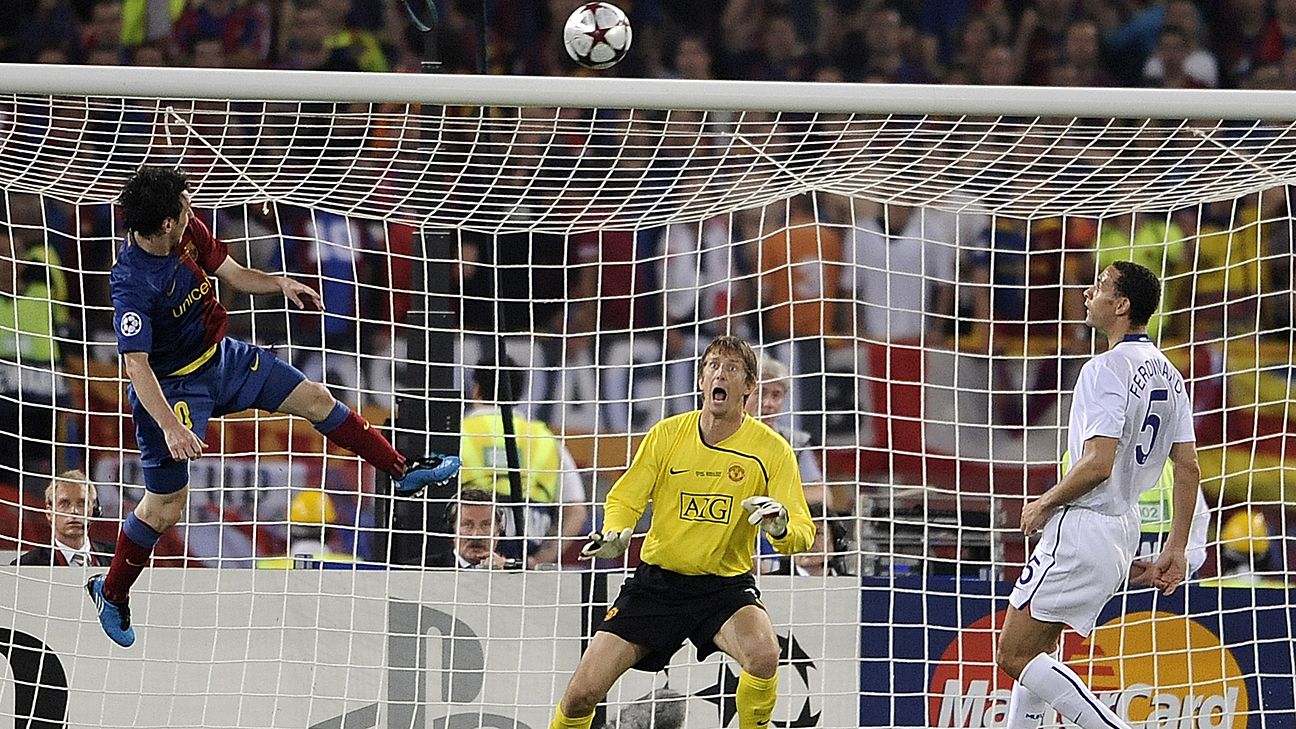
Paula LavigneJun 3, 2025, 04:37 PM ET
- Data analyst and reporter for ESPN's Enterprise and Investigative Unit.
- Winner, 2014 Alfred I. duPont Columbia University Award; finalist, 2012 IRE broadcast award; winner, 2011 Gannett Foundation Award for Innovation in Watchdog Journalism; Emmy nominated, 2009.
At least 15 former Indiana University men's basketball players are now alleging improper sexual conduct by a former team physician and saying Indiana officials, including the late coach Bobby Knight, were aware of the behavior.
Since two former Hoosiers sued the university last fall, five ex-athletes are now named in the lawsuit, and 10 additional men are also planning to pursue litigation against Indiana, their attorney, Michelle Simpson Tuegel, told ESPN.
Even though their legal path grew more difficult with the death of Dr. Bradford Bomba last month and the release of an outside investigation that cleared him of sexual misconduct, the men say they are driven to share their stories, in part to protect others from such behavior.
"I have two sons who are the same age that I was when that happened to me. At the time I viewed myself as an adult, but now I realize, looking at my own kids, how young and powerless me and my teammates actually were," Haris Mujezinovic, who was one of the two original plaintiffs and played for the Hoosiers in the late '90s before going pro overseas, wrote in an email. "The adults within the basketball program who were entrusted with our care knew what was happening to us. They joked about it and let it continue."
In their lawsuit and in interviews, the men say Bomba, who worked as an Indiana men's basketball team physician for nearly 30 years up until the late '90s, routinely gave male athletes rectal exams during physicals even though medical guidance did not recommend them for college-age men. The lawsuit claims the behavior amounted to sexual misconduct and that university officials aware of the issue -- including Knight, who died in 2023 -- failed to stop it. A representative for Bomba's family did not respond to ESPN's request for comment.
Players allege that they complained about the exams, and some said they asked to see a different physician. But they said Knight and head athletic trainer Tim Garl ordered players to see Bomba regardless. Butch Carter, who played at Indiana in the late 1970s and went on to play and coach in the NBA, wrote in a letter included in the lawsuit that he told Knight he never wanted to see Bomba again for medical care and that he "complained multiple times" to Knight about the doctor's "abusive behavior during physical examinations." Carter is not a plaintiff but gave a sworn statement describing his own interactions with Bomba.
Garl, who is a defendant in the lawsuit, was the head athletic trainer from 1981 until this year, when Indiana announced it would not renew him for a 45th season. His attorneys argued in court filings that the men filed their complaints "decades too late," and that Garl didn't supervise Bomba in any "relevant sense." When reached for comment, one of Garl's attorneys cited the outside investigation, writing that the report found that rectal exams are a normal part of a physical.
When asked about the lawsuit, a university spokesman declined to comment, citing pending litigation.
The nature of the claims against Bomba and Indiana are similar to other cases involving sexual abuse allegations against team doctors, including those at Michigan and Ohio State. The largest case, at Michigan State, resulted in multimillion-dollar settlements and the criminal conviction of Dr. Larry Nassar for his abuse of hundreds of gymnasts over three decades.
In the Michigan and Ohio State cases, the doctors were never questioned because they were dead by the time the cases were brought. Shortly before Bomba's death at age 89, a judge ruled that Bomba was not competent to be further deposed. When he was initially deposed last year, Bomba refused to answer 45 questions by invoking his Fifth Amendment right against self-incrimination.
If the case proceeds to a jury, Kathleen Delaney, the attorney who filed the lawsuit, said she plans to present evidence that Bomba invoked the Fifth Amendment so that the jury could "draw adverse inferences from those refusals."
Unlike at Indiana, the internal investigations at Michigan and Ohio State supported the claims of sexual misconduct. Even though Michigan State's 2014 Title IX investigation would clear Nassar of any wrongdoing, later university investigations done alongside and after the criminal prosecution backed up survivors' claims of abuse. Michigan State recently announced it would partner with three survivors to form a new advisory board to help guide an institutional assessment and responsive action to sexual violence.
Last month, an investigation Indiana commissioned found that while Bomba did routinely perform digital rectal exams, those were done in a "clinically appropriate manner" and there was "no evidence to suggest that Dr. Bomba achieved sexual gratification." Investigators spoke to 100 individuals, examined 10,000 emails, and reviewed more than 100,000 pages of physical documents spanning six decades, according to the April 25 report by law firm Jones Day, which conducted the investigation.
Simpson Tuegel, the attorney representing the 10 men who are preparing to file suit, said she has two clients whose stories contradict the finding that Bomba's actions were not sexual: One man who played in the late '90s said that Bomba "fondled his genitalia" during a physical and another man, who was a minor in high school, was subjected to a rectal exam at Bomba's clinic.
Medical experts cited in the Jones Day report noted that Bomba's use of the rectal exam in young men without any concerning history or symptoms was "uncommon." But they were divided on whether the practice was inappropriate or considered part of a comprehensive exam given how standards evolved since the early days of Bomba's practice in the late 1960s.
Rectal exams are generally used to screen for prostate and other cancers, and in the 1990s, when most of the men played for Indiana, the American Cancer Society recommended them for men aged 50 and older. Guidance updated in 1997 stated that men in high-risk groups or those with a family history of cancer may begin at a younger age, giving the example of 45 years. It did not recommend them as standard protocol for healthy, college-age men.
The report found that players would "joke or engage in what they characterized as 'locker room banter'" regarding Bomba's exams, within earshot of staff. Investigators noted that Garl characterized it as harmless "razzing" and said that no players ever complained about the exams as "being inappropriate or sexual in any manner."
Another legal hurdle the men face is the statute of limitations. Indiana University has argued in a court filing that the ex-athletes' claims are invalid because they fall outside the state's two-year statute of limitations for bringing sexual assault claims in civil litigation.
In their filings, the men's attorneys cite the Ohio State case involving Dr. Richard Strauss. The lawsuit was filed in 2018, and Strauss had died by suicide in 2005. In 2021, a U.S. district court dismissed the first lawsuits based on the two-year statute of limitations. An appeals court ruled, however, that the former Ohio State athletes could argue the statute of limitations began only when they knew or should have known that Ohio State administrators "with authority to take corrective action" knew of Strauss's conduct and failed to address it.
The former Hoosiers also are up against a Supreme Court ruling in 2022 that prevents plaintiffs from recovering damages for emotional distress in federal Title IX claims, which means a lower likelihood of a monetary award. In their initial demand letter to the university regarding only Mujezinovic's claim, attorneys asked for $5 million. Earlier this year, they added a claim of negligence against Indiana University, and other claims against the school and Garl, who was added to the lawsuit as a defendant in January.
On May 22, a magistrate judge ruled that the plaintiffs can move forward with gathering records and information, including questioning Garl, while the presiding district court judge decides whether to dismiss the claims.
One of Garl's attorneys, Christopher Lee, wrote in an email that he was expecting that ruling soon.
"The Jones Day report makes clear that DREs [digital rectal exams] are a normal and, at the time, required portion of a complete physical examination," he wrote. "The physicians I have spoken with are upset that new physicians may be spooked by the lawsuit and not perform a DRE. DREs provide meaningful information to skilled physicians."
The ex-players who initiated the lawsuit and those who have recently come forward say they are motivated by their own children, some of whom are college athletes. Charlie Miller, one of the two original plaintiffs, said his four children are "watching, listening, and learning from how I live this out."
One of Simpson Tuegel's clients, who requested anonymity out of concern for his children, said he knows players who spoke to the Jones Day investigators and are disappointed by their findings. He has college-age children and said regardless of what happens, the process has validated his feelings.
"Maybe I lived with that intuition for a long time. ... I guess I've always known it," he said. "I knew that guy was wrong, and I knew that something wasn't right about it."


















































